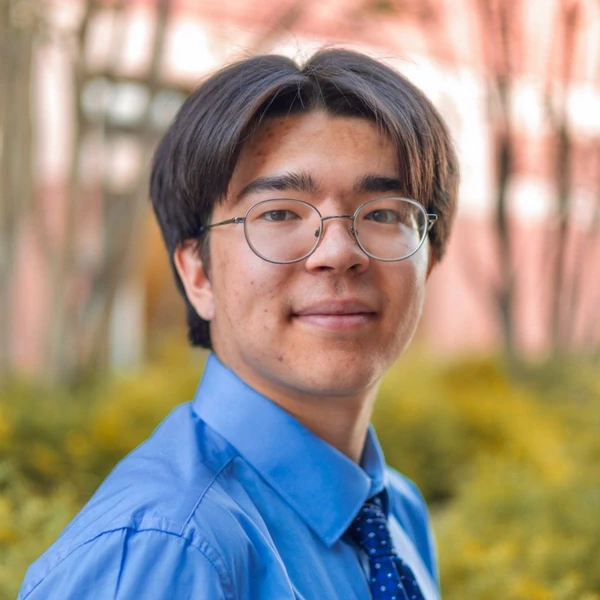
Rancho Cucamonga, CA
Age
19
Gender
Male
Ethnicity
Asian, Caucasian
Religion
Christian
Church
Christian Church
Hobbies and interests
Photography and Photo Editing
Video Editing and Production
Videography
Cinematography
Medicine
Biomedical Sciences
Biology
Neuroscience
Anatomy
Reading
Science Fiction
Science
Speculative Fiction
I read books multiple times per week
Lucas Avery
635
Bold Points5x
Nominee1x
Finalist1x
Winner
Lucas Avery
635
Bold Points5x
Nominee1x
Finalist1x
WinnerBio
I’m a neuroscience major at the University of Southern California with a deep passion for advancing human longevity and one day ending neurodegeneration. My goal is to become the greatest health professional I can be—one who not only treats, but also transforms lives through innovation. I want to be a doctor because I believe in the power of direct, compassionate care and the ability to heal and guide people through their most vulnerable moments.
I’ve conducted neuroscience research, joined journal clubs at Stanford, interned at San Antonio Regional Hospital, worked as a Community Health Worker, participated in public health advocacy through AmeriCorps and Rancho Cucamonga Youth Leaders, and led local outreach efforts. My dream is to start a biotech company that pushes the boundaries of lifespan expansion by targeting neurodegenerative diseases. Every step I take, from shadowing clinicians to building my foundation in neuroscience and lifespan health, is driven by a vision to help people live longer, healthier, and more fulfilling lives.
Education
University of Southern California
Bachelor's degree programMajors:
- Neurobiology and Neurosciences
Miscellaneous
Desired degree level:
Doctoral degree program (PhD, MD, JD, etc.)
Graduate schools of interest:
Transfer schools of interest:
Majors of interest:
- Medicine
- Neurobiology and Neurosciences
- Biological and Biomedical Sciences, Other
- Health/Medical Preparatory Programs
- Biomedical/Medical Engineering
- Medical Clinical Sciences/Graduate Medical Studies
- Clinical/Medical Laboratory Science/Research and Allied Professions
Test scores:
1500
SAT
Career
Dream career field:
Medicine
Dream career goals:
Neurologist
Community Health Worker
ReachOut West End2024 – 20251 year
Research
Neurobiology and Neurosciences
Los Osos High School — Researcher2023 – 2024
Public services
Volunteering
ReachOut West End — Organized events, worked with patients2024 – 2025Volunteering
City of Rancho Cucamonga — Assist Children2023 – 2024
Future Interests
Advocacy
Volunteering
Philanthropy
Entrepreneurship
Compassion in Action Future Medical Leaders Scholarship
WinnerOne of my Asian friends turned to me and said, “You’re so pale—you look like you’ve never been outside.” Everyone laughed. I laughed too. But later that night, I couldn’t stop thinking about it. It wasn’t just my ghostly skin tone that was haunting me—it was a deep, underlying feeling I had always carried: I didn’t fully belong anywhere.
Being half Chinese and half white has always made me feel like I’m stuck in the middle. Growing up in an Americanized home, I often felt disconnected from my Asian side. I didn’t speak my mother’s language, and I wasn’t immersed in traditional Asian customs. A part of me always felt like something was missing, like I wasn’t fully part of either world.
That sense of misbelonging followed me throughout my life, but it became most apparent to me in high school. It wasn’t always noticeable, but I felt it most when I gravitated toward a mostly Asian friend group. I was embarrassed when they would make jokes or speak in Mandarin, which I couldn’t understand. At Asian restaurants, I fumbled with chopsticks while everyone else seemed at ease. I wanted to change, but how could I suddenly learn Mandarin overnight? There seemed to be no way to escape the feeling of being out of place.
At the same time, I wasn’t the athletic, outdoorsy, sports-loving guy that my white friends were. I looked different from them and shared fewer common interests, making it hard to bond. That isolation—feeling like I wasn’t enough of one thing, yet too much of another—was overwhelming. For a while, I felt lost, like a jellyfish floating without purpose. But in those quiet moments, I turned to my faith. I didn’t have know what to say, but I prayed anyway. Slowly, I began to feel less alone.
Through those conversations—sometimes prayers, sometimes just thoughts—I realized I didn’t need to fit into a mold. Maybe I was made this way for a reason. I began attending church more, and there, I found a community that accepted me. I stopped trying to be what others expected and started to embrace who I already was. I came to believe that God created me intentionally, with all my complexities, and I stopped trying to compensate for things that weren’t part of my true self.
As I grew more confident in my identity, I also became more open to others. I started noticing people who seemed isolated, just as I had once felt. I saw the value in offering a listening ear, in showing compassion to people who struggled with their own sense of belonging. My faith taught me to care for others in a real, present way—to listen without judgment and to offer support when it was needed most.
This is why I want to pursue a career in medicine. I’ve always had a passion for science, but what really draws me to healthcare is the human aspect: the chance to be there for someone when they’re vulnerable, scared, or uncertain. I want to be the kind of doctor who doesn’t just treat symptoms, but who sees the individual behind the visit. My identity and my faith have taught me how powerful it is to feel truly seen and heard, and I want to give that same feeling to others. I want to serve people to the best of my ability, offering not just care, but compassion.